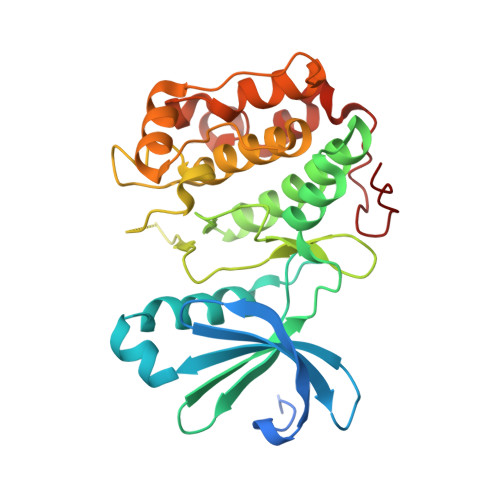Discovery of a potent and highly selective PDK1 inhibitor via fragment-based drug discovery.
Erlanson, D.A., Arndt, J.W., Cancilla, M.T., Cao, K., Elling, R.A., English, N., Friedman, J., Hansen, S.K., Hession, C., Joseph, I., Kumaravel, G., Lee, W.C., Lind, K.E., McDowell, R.S., Miatkowski, K., Nguyen, C., Nguyen, T.B., Park, S., Pathan, N., Penny, D.M., Romanowski, M.J., Scott, D., Silvian, L., Simmons, R.L., Tangonan, B.T., Yang, W., Sun, L.(2011) Bioorg Med Chem Lett 21: 3078-3083
- PubMed: 21459573
- DOI: https://doi.org/10.1016/j.bmcl.2011.03.032
- Primary Citation of Related Structures:
3PWY, 3QC4 - PubMed Abstract:
We report the use of a fragment-based lead discovery method, Tethering with extenders, to discover a pyridinone fragment that binds in an adaptive site of the protein PDK1. With subsequent medicinal chemistry, this led to the discovery of a potent and highly selective inhibitor of PDK1, which binds in the 'DFG-out' conformation.
- Sunesis Pharmaceuticals, Inc., 395 Oyster Point Blvd., South San Francisco, CA 94080, USA. derlanson@carmot.us
Organizational Affiliation:

















